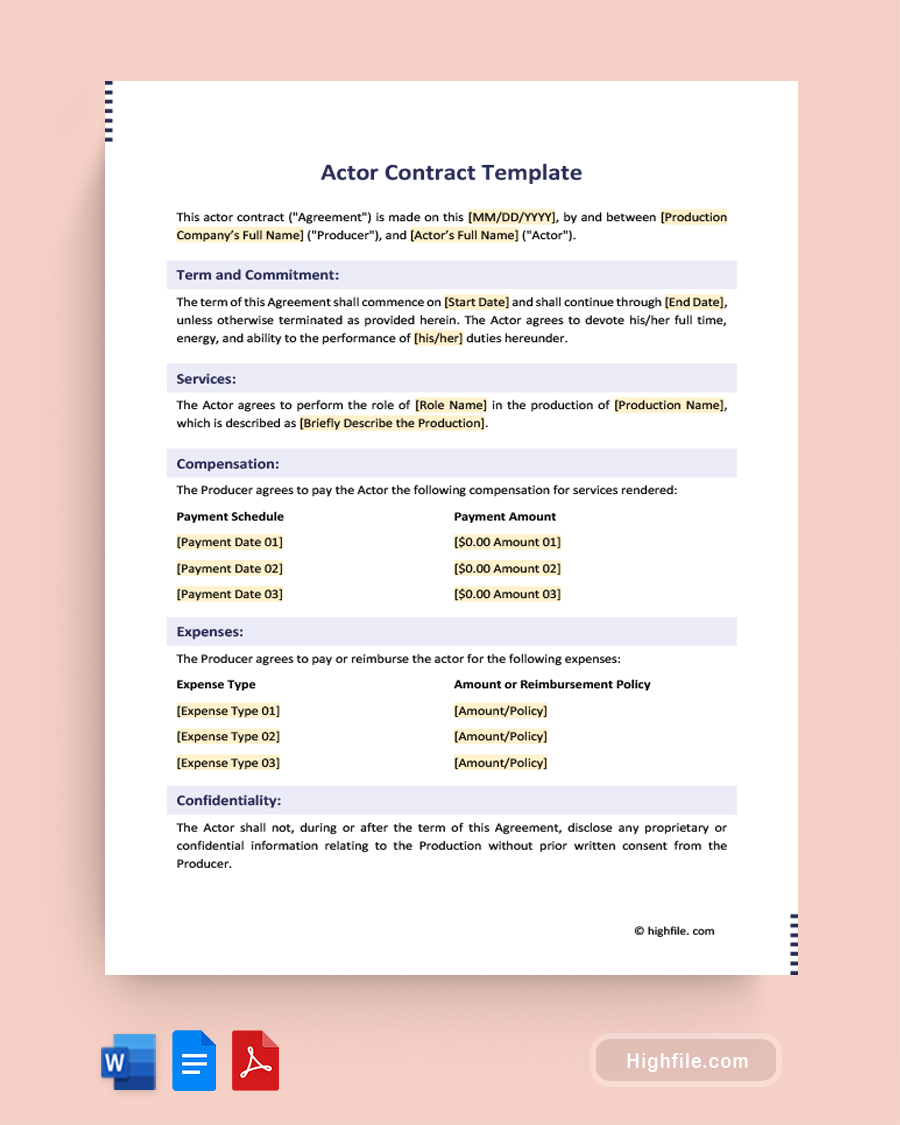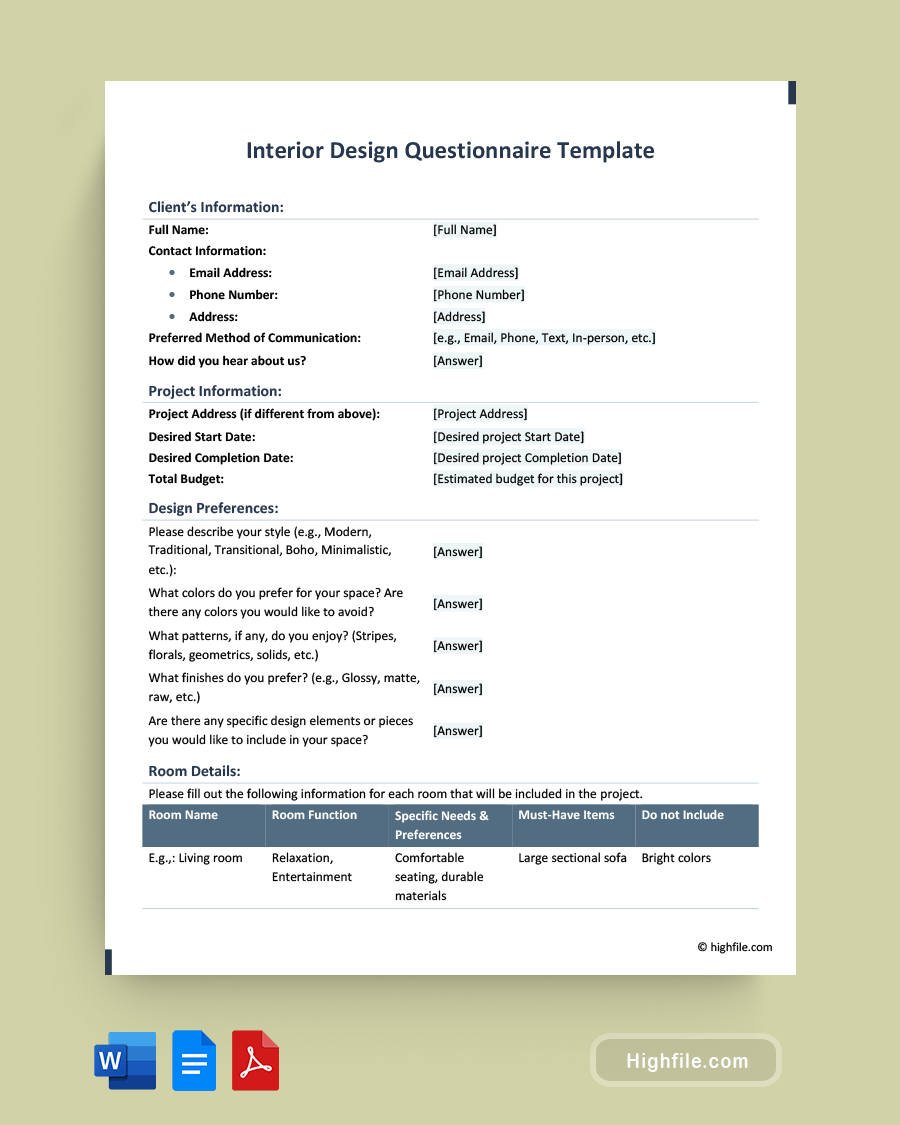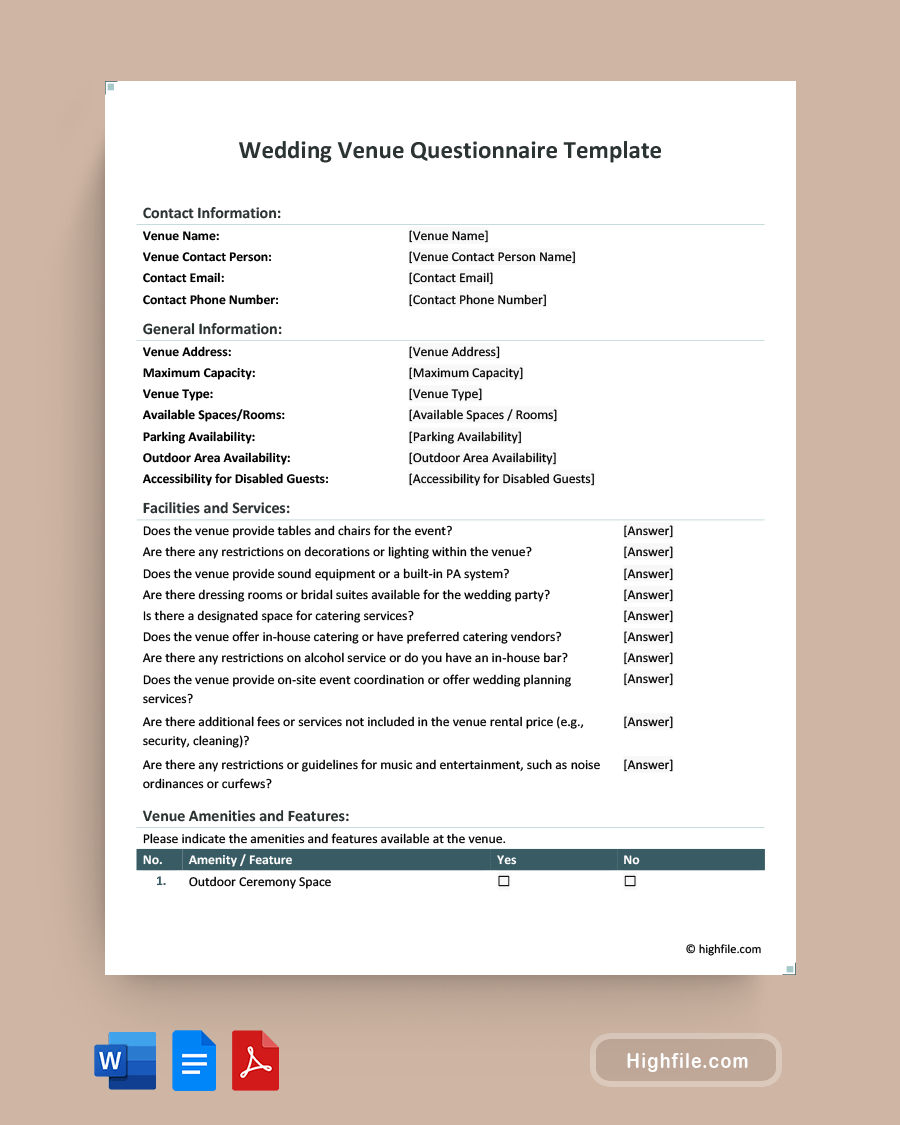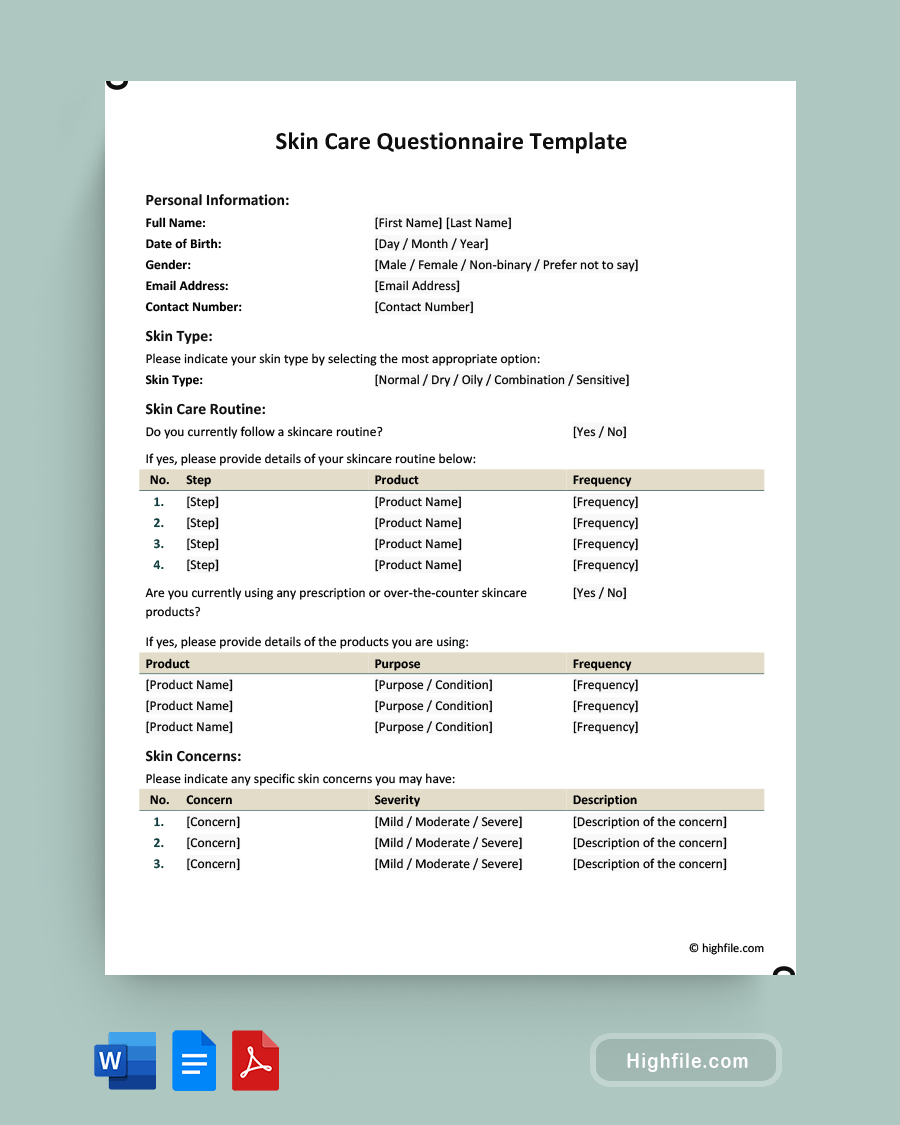Whether you are making a movie, a TV or stage show, a commercial, or another production, you need actors. In order to hire actors, you need a solid contract to establish the agreement and its terms. For actors, a good contract makes participating in a production worthwhile because it helps protect your rights and defines the exact scope of what you are agreeing to do. Our Actor Contract Template can help save time and create a reasonable, legally compliant, mutually beneficial document. Read on, and we’ll share everything you need to know.
What Is an Actor Contract Template?
An actor contract template is a format to help you create a standardized document that outlines the terms and conditions of an agreement between an actor and a production company. When used properly, it is a legally binding contract that defines both parties’ rights, responsibilities, and expectations. The contract template provides a framework for actors and production companies to negotiate and establish a clear agreement, ensuring a smooth, legally compliant, and professional working relationship.
Why is it Important to Have a Written Contract as an Actor?
Having a written contract is important for actors to protect their rights and ensure a fair and transparent working relationship with production companies. Here are some key reasons why you always need to have a written contract:
- Necessity: Although a verbal contract is acceptable in many places, proving you have one is dicey at best. Putting things in writing is simpler and allows for properly recording the arrangements.
- Clarity: A written contract clearly defines the terms and conditions of the actor’s involvement in a project. It helps prevent misunderstandings and disputes arising from verbal agreements or assumptions.
- Legal Protection: A written contract protects both the actor and the production company. It ensures that the agreed-upon terms are binding and enforceable, offering recourse in case of breaches or disagreements. It often includes specific recourse and can specify the jurisdiction of enforceability in its terms.
- Rights and Obligations: An actor contract outlines the rights and obligations of both parties, ensuring that the actor’s work, compensation, intellectual property rights, and other important aspects are clearly defined and protected.
- Payment and Compensation: A written contract states the agreed-upon compensation for the actor’s services, including payment amounts, payment schedule, and any additional expenses or reimbursements. It helps ensure timely and fair payment. You should never sign a contract unless it defines fair and reasonable payment for using your likeness.
- Production Details: The actor contract includes essential details about the production, like the project title, production dates, shooting locations, and the expected commitment and availability of the actor. This information helps actors plan their schedules and manage their professional commitments appropriately.
- Professionalism: Having an actor contract demonstrates professionalism and establishes a working relationship. It should set clear expectations and foster mutual respect and accountability.
Essential Elements of an Actor Contract Template
The essential elements of an actor contract template define the necessary sections of an actor contract, like terms, compensation, commitment period, expenses, and confidentiality. Here is what you should expect to see in a professional template:
- Form Title: The title of the contract indicates its purpose and nature.
- Agreement Statement: An introductory statement shows the agreement between the actor and the production company to enter into a contractual relationship.
- Term and Commitment: The duration of the contract, including the specific dates or a time frame during which the actor is expected to provide their services.
- Services: A detailed description of the services the actor will provide in the production, specifying the role, character, and any other responsibilities.
- Compensation Statement: A statement that outlines the actor’s compensation for their services.
- Compensation Chart: A breakdown of the payment schedule, including the payment amounts and due dates.
- Expenses: Information about the actors’ expenses incurred during the project, including reimbursement policies, scope, and procedures.
- Confidentiality: A provision explaining how the confidentiality of any sensitive or proprietary information related to the production will be handled.
- Governing Law: The jurisdiction or legal system under which the contract is governed should be specified.
- Entire Agreement: A statement indicating that the contract represents the entire agreement between the actor and the production company. Typically it supersedes any previous understandings or agreements.
- Actor’s Information: The actor’s personal information, including their name, contact details, and identification.
- Signature and Date Lines: Signature lines for the actor and a production company representative, and the date of signing.
Pro Tip: Account for the unknowable. Adding a clause covering expectations and reasonable workarounds is smart in case something unexpected or unavoidable happens. This can include acts of nature, illness, family emergencies, and anything else that might delay or halt production.
FAQ
An actor contract template is a standardized document that outlines the proper way to create a contract for an actor. It should have clearly defined sections that the actor and production company representative fills out. Additionally, it helps ensure that all the important aspects of the arrangement are defined so that the finished product can be used as a legally binding contract.
To ensure that an actor contract template is legally binding, follow these steps:
Use a Reputable Template: Obtain the contract template from a trusted source to ensure it includes all the important information. This will help reduce errors and issues.
Enforceable Standards: It is important to make sure that anything you put into your contract is enforceable. Standards that violate laws or human rights are considered unenforceable and literally do not apply no matter what someone signs.
Customize: Tailor the contract template to reflect your agreement’s specific terms, conditions, and requirements. Ensure that all relevant details are accurately and thoroughly included. We recommend using a customizable template so you can quickly and easily make these adjustments on a case-by-case or production-by-production basis.
Legal Advice: If you have concerns about the legal implications of the contract or require specific clauses to be included, consult with an entertainment lawyer. They can provide legal guidance and ensure that the contract adheres to applicable laws and regulations.
Informed Consent: Informed consent means that the person signing the contract has read and understood all of it and that they were in no way pressured or forced to sign.
Completion: The actor and a representative of the production company must sign the contract. Signatures validate the agreement and make it legally binding.
You should consult with a lawyer before using an actor contract template. If you have specific concerns, require modifications, or if the project involves complex legal aspects, then a legal professional is the only person qualified to consult on the subject. A lawyer experienced in entertainment law can provide valuable advice and even review the contract template for compliance with relevant laws and regulations. Consulting an attorney helps ensure that your rights and interests are properly protected. Moreover, they can also help negotiate terms and make any necessary adjustments to the contract to suit your specific needs.
Final Thoughts
Having a written contract is essential for actors. It helps to protect their rights, establish clear expectations, and ensure a fair and professional working relationship with production companies. An actor contract template provides a standardized framework for defining the terms and conditions of this type of agreement. It offers a blueprint for aspects like services, compensation, confidentiality, and more. Production companies can offer a fair, legally compliant, and reasonable contract by using an actor contract template and seeking legal guidance when necessary. Meanwhile, actors can safeguard their interests and have peace of mind, knowing that their rights and obligations are clearly defined and legally protected.







